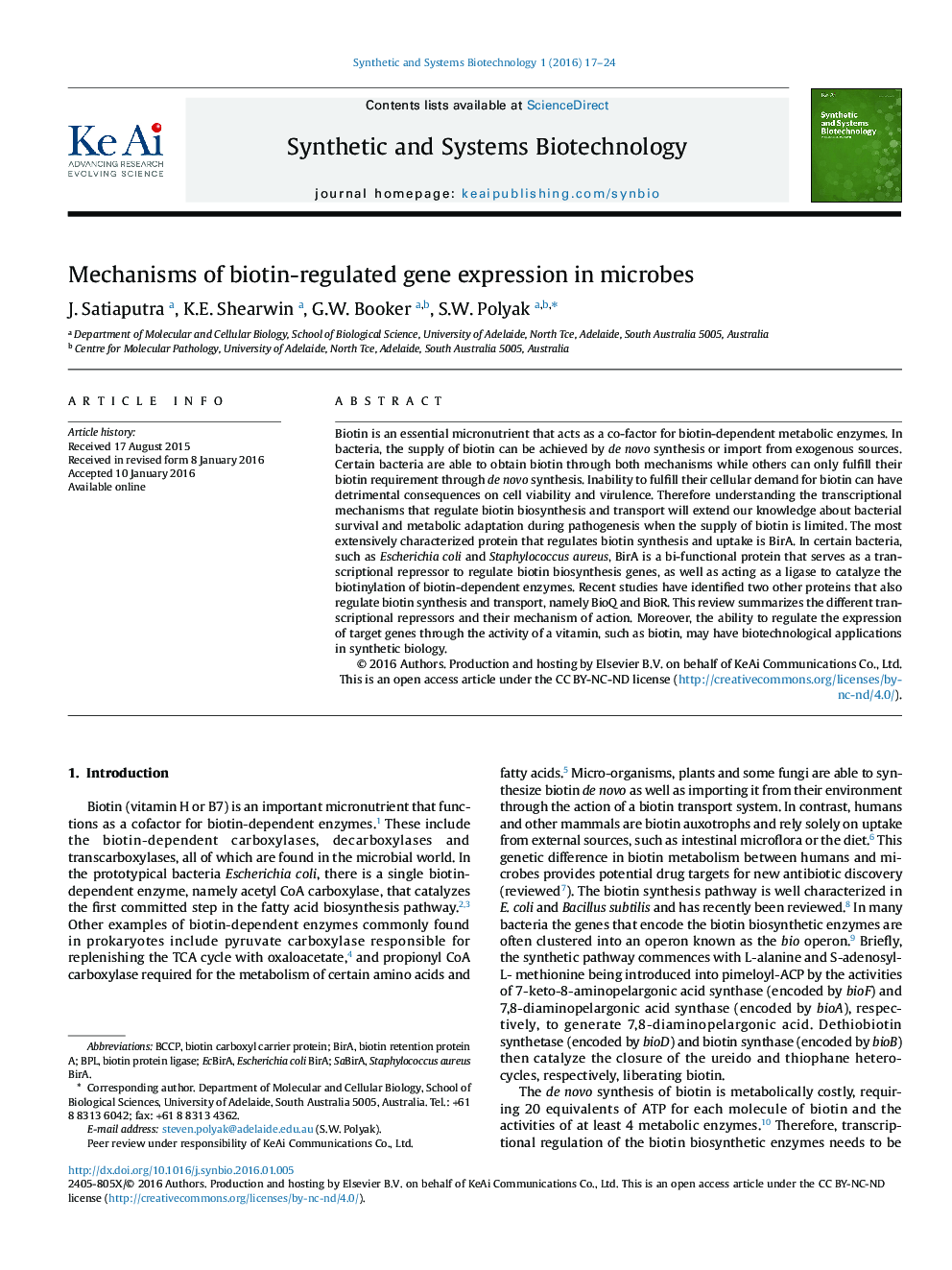| Article ID | Journal | Published Year | Pages | File Type |
|---|---|---|---|---|
| 2094659 | Synthetic and Systems Biotechnology | 2016 | 8 Pages |
Biotin is an essential micronutrient that acts as a co-factor for biotin-dependent metabolic enzymes. In bacteria, the supply of biotin can be achieved by de novo synthesis or import from exogenous sources. Certain bacteria are able to obtain biotin through both mechanisms while others can only fulfill their biotin requirement through de novo synthesis. Inability to fulfill their cellular demand for biotin can have detrimental consequences on cell viability and virulence. Therefore understanding the transcriptional mechanisms that regulate biotin biosynthesis and transport will extend our knowledge about bacterial survival and metabolic adaptation during pathogenesis when the supply of biotin is limited. The most extensively characterized protein that regulates biotin synthesis and uptake is BirA. In certain bacteria, such as Escherichia coli and Staphylococcus aureus, BirA is a bi-functional protein that serves as a transcriptional repressor to regulate biotin biosynthesis genes, as well as acting as a ligase to catalyze the biotinylation of biotin-dependent enzymes. Recent studies have identified two other proteins that also regulate biotin synthesis and transport, namely BioQ and BioR. This review summarizes the different transcriptional repressors and their mechanism of action. Moreover, the ability to regulate the expression of target genes through the activity of a vitamin, such as biotin, may have biotechnological applications in synthetic biology.
